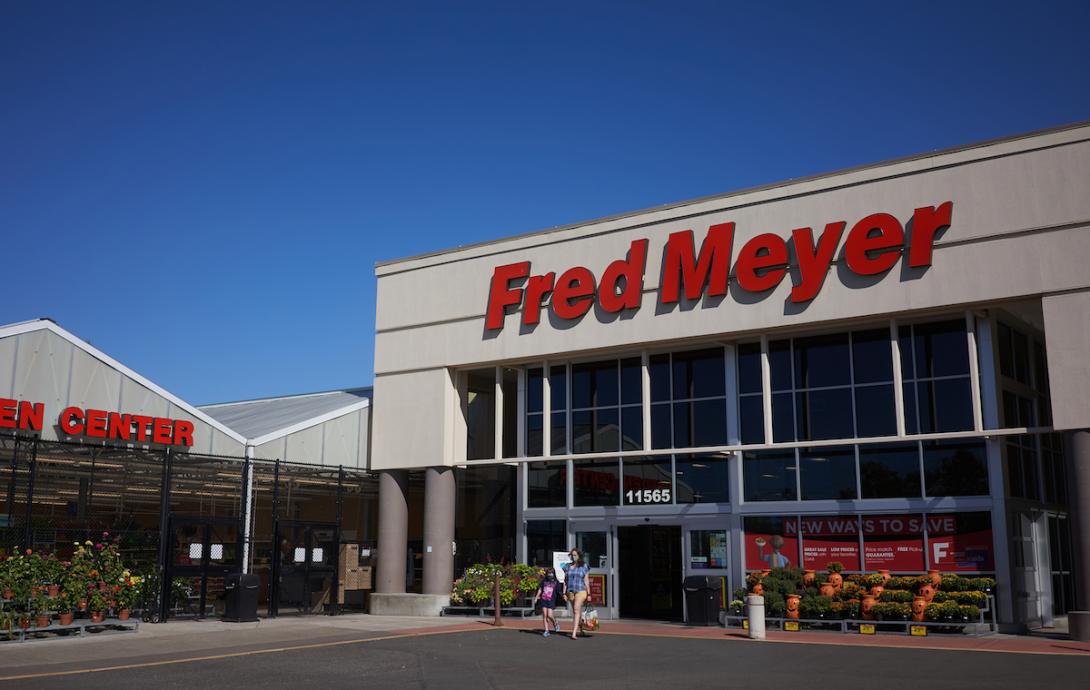
Grocery giant Kroger could be poised to take control of nearly a third of Oregon’s retail prescription drug market if it successfully purchases competitor Albertsons, according to a state analysis.
The Oregon Health Authority released the analysis on Wednesday as regulators scrutinize plans by Kroger, which owns Fred Meyer and QFC, to acquire Albertsons for $24.6 billion. The analysis found that the merger would result in a “moderate concentration” of Oregon’s retail prescription drug market with Kroger commanding nearly 30%, and its nearest unnamed competitor holding 13%.
If successful, the merger would be the latest in an increasingly consolidated health care services market in Oregon and nationally. It would also come as the number of retail pharmacies have dwindled in recent years, sparking particular concern about access in rural Oregon.
Currently, Kroger and Albertsons operate more than 150 retail pharmacies spread across 29 counties in Oregon that make up nearly 99% of the state’s population, according to the analysis.
“This means that any changes to access to pharmacy services, cost and prices, quality of care, or health equity as a result of the transaction have the potential to affect the communities where most Oregonians live and work,” reads the analysis.
Kroger has not identified which stores it will sell or shut down. But both companies have indicated that “the purpose of the transaction is to create a more competitive combined company” and Kroger has stated “it has no plans to reduce health care or pharmacy services in Oregon,” according to the analysis.
The health authority will conduct a comprehensive review in the coming months evaluating how the deal will affect access to prescription medications before determining whether to approve it.
The analysis pointed to one access issue: Kroger stopped accepting TRICARE, which provides coverage for military service members and their families, at its pharmacies in 2023. However, Albertsons continues to accept TRICARE.
Additionally, the analysis raised concerns about the lack of clarity about which stores will be closed as part of the merger. It pointed to how Albertsons sold 146 Haggen supermarket stores after acquiring Safety in 2014. Haggen later filed for bankruptcy and blamed the merger for its demise.
Brian Mayo, executive director of the Oregon State Pharmacy Association, told The Lund Report in an email that the proximity of Albertsons and Kroger stores could cause a similar situation if the merger goes through. He said the association is worried the merger could cause store closures and destabilize pharmacy jobs.
“We’ve talked about the problems with pharmacy closures in rural areas a lot,” he said. “This is going to impact the urban communities now.”
Kroger, a publicly traded corporation with a presence in 35 states, operates 53 retail pharmacies in its Fred Meyer stores in Oregon, according to a regulatory filing. Albertsons operates 106 retail pharmacies in Oregon.
“Kroger anticipates sourcing efficiencies from the combination with Albertsons that will enable lower sourcing costs for prescription drugs and other health care products, which will help Kroger maintain affordable prescription drug and health care product prices,” reads the filing.
So far, the merger has only drawn one comment, from Nicolas Powers, the CEO of the Enterprise-based nonprofit Winding Waters Clinic, who expressed concern that it would mean less patient access.
“The merger of Kroger and Albertsons could lead to the consolidation or even closure of multiple pharmacy locations, reducing the number of accessible pharmacy locations in communities where alternatives are scarce or non-existent,” he wrote. “Such reductions in accessibility could force patients in rural Oregon to travel longer distances for their medications or forgo them altogether, creating major financial and transportation barriers and significant health risks.”